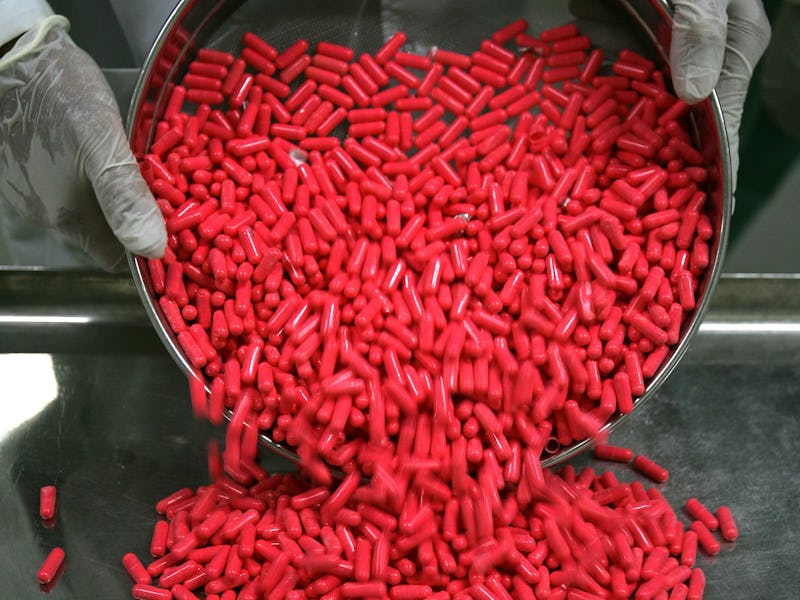How Artificial Intelligence Is Being Used to Discover New Uses for Drugs
"If this approach works, it will uberize the pharmaceutical industry."

At any given moment, pharmaceutical firms have a massive library of compounds and no clue what to do with them. Tucked away in extensive collections of synthetic and theoretical drug banks lie hidden gems — drugs to treat perhaps even the most devastating diseases — but identifying them is a pain: testing can take years, even decades, and often researchers aren’t even sure what they’re looking for. What they need is a way to sort through the duds — and now, it’s looking like artificial intelligence can help.
Scientists from Insilico Medicine, a bioinformatics firm, have figured out how to teach A.I. to predict the therapeutic use of new drugs before they’re even tested. Publishing their work today in the journal Molecular Pharmaceutics, they discuss their A.I.’s training regimen, which involves taking in huge amounts of data from experiments on human cells using known drugs. Altogether, it was fed experimentation data on 678 drugs and the effects they had on gene expression in three types of human cells.
With the A.I.'s help, the number of drugs used clinically could potentially double.
Over time, the A.I. developed an impressive ability to predict what made a drug useful, achieving 54.6 percent accuracy in identifying one out of 12 of the drugs therapeutic applications. While these may seem like small strides, they represent a huge step for researchers, who otherwise would have to make these predictions through tedious experimentation.
Even the A.I.’s “wrong” answers were helpful, pointing at secondary uses for drugs that researchers hadn’t even considered.
“The world of artificial intelligence is rapidly evolving and affecting every aspect of our daily life,” says Alex Zhavoronkov, Ph.D., CEO of Insilico Medicine. “And soon this progress will be felt in the pharmaceutical industry. We set up the Pharma.AI division to help pharmaceutical companies significantly accelerate their R&D and increase the number of approved drugs, but in the process we came up with over 800 strong hypotheses in oncology, cardiovascular, metabolic and CNS space and started basic validation.”
“We are cautious about making strong statements, but if this approach works, it will uberize the pharmaceutical industry and generate unprecedented number of QALY.”
Scientists are using A.I. to sort through drug uses to bring more medicines to market.
While the study was a proof of concept that A.I.s could be used to identify drugs using genetic data, it effectively created a straight-up pipeline for drug discovery — a feat that Alex Aliper, Ph.D., the study’s lead author and Insilico Medicine’s president, described as “next level.” The A.I.’s predictions could rapidly accelerate the preclinical stage for drugs — that is, figuring out whether a drug is toxic to cells in a dish and cells within a body — potentially doubling the number of drugs being used clinically.